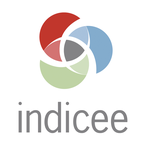The Rise of Decentralized AI: Presearch and Jitterbit Redefine User Experience
February 12, 2025, 3:55 am

Location: United States, Florida, Jacksonville
Employees: 5001-10000
Founded date: 1841

Location: United States, California, San Mateo
Employees: 201-500
Founded date: 2013
Total raised: $22.3M

Location: United States, California, Mountain View
Employees: 201-500
Founded date: 2017
Total raised: $130M

Location: United States, Washington, Bellevue
Employees: 10001+
Founded date: 1990
In the fast-paced world of technology, the emergence of decentralized AI is akin to a breath of fresh air. It promises autonomy, privacy, and a break from the chains of corporate control. Two companies leading this charge are Presearch and Jitterbit. They are not just innovating; they are revolutionizing how we interact with artificial intelligence.
Presearch recently launched PreGPT 2.0, a powerful AI chatbot that champions privacy and unbiased insights. This upgrade builds on the foundation laid by its predecessor, PreGPT, which was the first AI chatbot powered entirely by decentralized computing. With PreGPT 2.0, users can expect a more robust experience, free from the constraints of big tech. It’s like stepping into a world where your thoughts are your own, unfiltered and uncensored.
The core of PreGPT 2.0 is its commitment to privacy. By utilizing Venice.ai’s infrastructure, it ensures that no chat content is stored. Responses are encrypted through decentralized GPUs, creating a fortress of security around user interactions. This is a stark contrast to mainstream AI systems, which often harvest user data for profit. Presearch is offering a lifeline to those weary of being tracked and manipulated.
The chatbot's capabilities extend beyond mere conversation. It provides insights across a spectrum of topics, from history to technology, all while maintaining a neutral stance. Imagine having a conversation with a wise friend who offers guidance without any hidden agenda. That’s the essence of PreGPT 2.0.
But what truly sets this AI apart is its non-training by default policy. This means users can engage with the chatbot without the fear of their data being used to train future models. It’s a bold move in an industry where data is often seen as the new oil. Presearch is not just selling a product; it’s selling a philosophy of user empowerment.
On the other side of the AI landscape, Jitterbit is making waves with its Harmony platform. By infusing natural language processing (NLP) into its offerings, Jitterbit is breaking down barriers that once separated technical and non-technical users. It’s like giving everyone a key to a locked door, allowing them to access the world of application development without needing to know how to code.
With Jitterbit’s AI-infused capabilities, users can now create, modify, and manage applications using simple natural language commands. This is a game-changer for businesses. It streamlines processes and fosters collaboration between IT and business units. No longer are applications isolated; they become interconnected systems that enhance overall efficiency.
The introduction of AI Assistants within the Harmony platform is another feather in Jitterbit’s cap. These assistants help users generate code and manage APIs with ease. It’s akin to having a personal tutor guiding you through the complexities of technology. This democratization of tech empowers users, saving them time and effort.
Moreover, Jitterbit’s focus on observability and security is commendable. With new tools for performance optimization and enhanced data management, organizations can now monitor their systems in real-time. This level of visibility is crucial in today’s data-driven world, where even minor disruptions can lead to significant setbacks.
Both Presearch and Jitterbit are not just reacting to trends; they are setting them. They recognize that the future of AI lies in user-centric design. As consumers become more aware of their digital footprints, the demand for privacy and autonomy will only grow. These companies are ahead of the curve, offering solutions that resonate with the evolving needs of users.
The implications of these advancements are profound. Presearch’s commitment to unbiased insights can disrupt the echo chambers that often dominate online discourse. By providing a platform for open conversations, it encourages critical thinking and exploration. This is vital in a world where misinformation can spread like wildfire.
Jitterbit’s approach to simplifying application development can accelerate innovation across industries. By enabling users to harness the power of AI without needing extensive technical knowledge, it opens the door for creativity and problem-solving. Businesses can adapt and evolve faster, responding to market demands with agility.
In conclusion, the rise of decentralized AI, as exemplified by Presearch and Jitterbit, is a pivotal moment in the tech landscape. These companies are not just creating products; they are fostering a movement towards greater user empowerment and privacy. As we navigate this new era, it’s clear that the future of AI is not just about technology; it’s about people. It’s about giving users the tools they need to thrive in a digital world that respects their autonomy. The winds of change are blowing, and they carry the promise of a brighter, more inclusive future.
Presearch recently launched PreGPT 2.0, a powerful AI chatbot that champions privacy and unbiased insights. This upgrade builds on the foundation laid by its predecessor, PreGPT, which was the first AI chatbot powered entirely by decentralized computing. With PreGPT 2.0, users can expect a more robust experience, free from the constraints of big tech. It’s like stepping into a world where your thoughts are your own, unfiltered and uncensored.
The core of PreGPT 2.0 is its commitment to privacy. By utilizing Venice.ai’s infrastructure, it ensures that no chat content is stored. Responses are encrypted through decentralized GPUs, creating a fortress of security around user interactions. This is a stark contrast to mainstream AI systems, which often harvest user data for profit. Presearch is offering a lifeline to those weary of being tracked and manipulated.
The chatbot's capabilities extend beyond mere conversation. It provides insights across a spectrum of topics, from history to technology, all while maintaining a neutral stance. Imagine having a conversation with a wise friend who offers guidance without any hidden agenda. That’s the essence of PreGPT 2.0.
But what truly sets this AI apart is its non-training by default policy. This means users can engage with the chatbot without the fear of their data being used to train future models. It’s a bold move in an industry where data is often seen as the new oil. Presearch is not just selling a product; it’s selling a philosophy of user empowerment.
On the other side of the AI landscape, Jitterbit is making waves with its Harmony platform. By infusing natural language processing (NLP) into its offerings, Jitterbit is breaking down barriers that once separated technical and non-technical users. It’s like giving everyone a key to a locked door, allowing them to access the world of application development without needing to know how to code.
With Jitterbit’s AI-infused capabilities, users can now create, modify, and manage applications using simple natural language commands. This is a game-changer for businesses. It streamlines processes and fosters collaboration between IT and business units. No longer are applications isolated; they become interconnected systems that enhance overall efficiency.
The introduction of AI Assistants within the Harmony platform is another feather in Jitterbit’s cap. These assistants help users generate code and manage APIs with ease. It’s akin to having a personal tutor guiding you through the complexities of technology. This democratization of tech empowers users, saving them time and effort.
Moreover, Jitterbit’s focus on observability and security is commendable. With new tools for performance optimization and enhanced data management, organizations can now monitor their systems in real-time. This level of visibility is crucial in today’s data-driven world, where even minor disruptions can lead to significant setbacks.
Both Presearch and Jitterbit are not just reacting to trends; they are setting them. They recognize that the future of AI lies in user-centric design. As consumers become more aware of their digital footprints, the demand for privacy and autonomy will only grow. These companies are ahead of the curve, offering solutions that resonate with the evolving needs of users.
The implications of these advancements are profound. Presearch’s commitment to unbiased insights can disrupt the echo chambers that often dominate online discourse. By providing a platform for open conversations, it encourages critical thinking and exploration. This is vital in a world where misinformation can spread like wildfire.
Jitterbit’s approach to simplifying application development can accelerate innovation across industries. By enabling users to harness the power of AI without needing extensive technical knowledge, it opens the door for creativity and problem-solving. Businesses can adapt and evolve faster, responding to market demands with agility.
In conclusion, the rise of decentralized AI, as exemplified by Presearch and Jitterbit, is a pivotal moment in the tech landscape. These companies are not just creating products; they are fostering a movement towards greater user empowerment and privacy. As we navigate this new era, it’s clear that the future of AI is not just about technology; it’s about people. It’s about giving users the tools they need to thrive in a digital world that respects their autonomy. The winds of change are blowing, and they carry the promise of a brighter, more inclusive future.